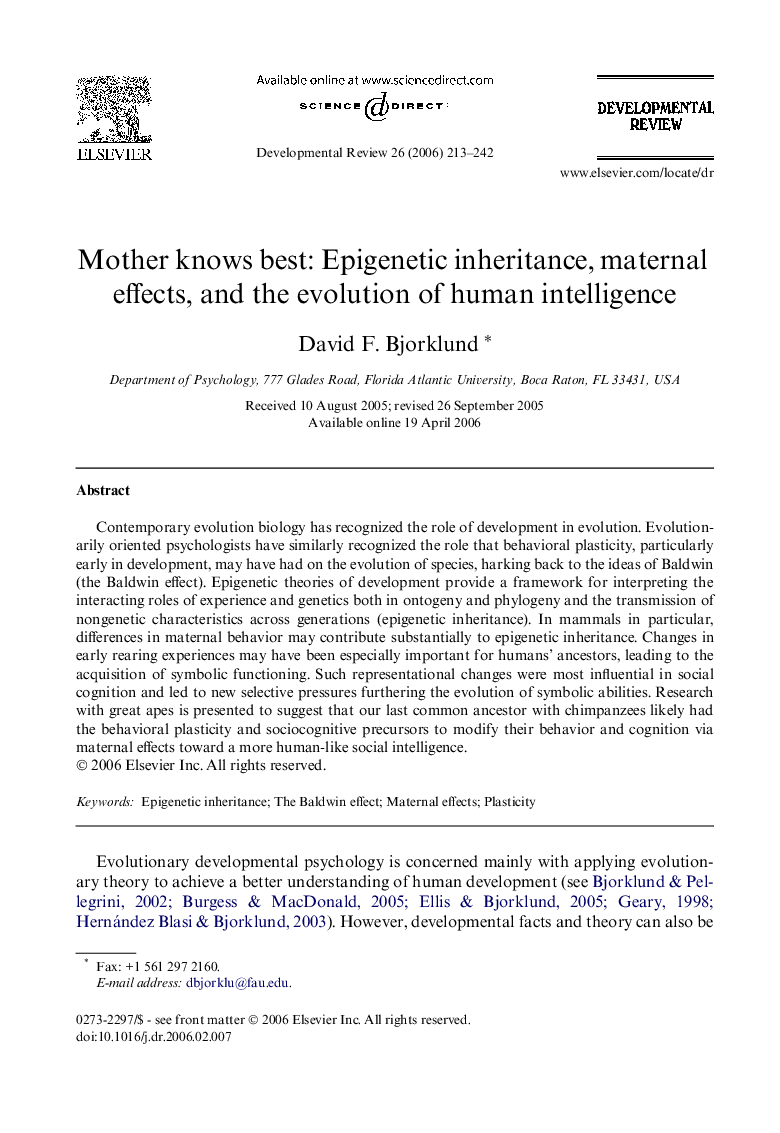| کد مقاله | کد نشریه | سال انتشار | مقاله انگلیسی | نسخه تمام متن |
|---|---|---|---|---|
| 353595 | 618830 | 2006 | 30 صفحه PDF | دانلود رایگان |

Contemporary evolution biology has recognized the role of development in evolution. Evolutionarily oriented psychologists have similarly recognized the role that behavioral plasticity, particularly early in development, may have had on the evolution of species, harking back to the ideas of Baldwin (the Baldwin effect). Epigenetic theories of development provide a framework for interpreting the interacting roles of experience and genetics both in ontogeny and phylogeny and the transmission of nongenetic characteristics across generations (epigenetic inheritance). In mammals in particular, differences in maternal behavior may contribute substantially to epigenetic inheritance. Changes in early rearing experiences may have been especially important for humans’ ancestors, leading to the acquisition of symbolic functioning. Such representational changes were most influential in social cognition and led to new selective pressures furthering the evolution of symbolic abilities. Research with great apes is presented to suggest that our last common ancestor with chimpanzees likely had the behavioral plasticity and sociocognitive precursors to modify their behavior and cognition via maternal effects toward a more human-like social intelligence.
Journal: Developmental Review - Volume 26, Issue 2, June 2006, Pages 213–242